Students promote the use of bikes in world cities
Gepubliceerd: 12 October 2016 • Leestijd: 4 minuten en 35 seconden • English Dit artikel is meer dan een jaar oud.In Los Angeles, people take you for a fool when you ride your bike in car traffic. Teacher Louis Uljee thought this was a shame, and set up a project to promote the use of bikes in three world cities. Nearly forty students did on-site field research.
Most (native) Dutch citizens have grown up riding a bike. You get one for your birthday; you learn to ride it with support wheels, and then without them. Most of us will have gone through four or five bikes by the time we move on to an adult-sized model. It’s no coincidence that (according to the Dutch Cyclists’ Union) there is no other prosperous country in which people ride bikes as much as we do in the Netherlands.
RBS teacher Louis Uljee is a fervent bike-rider himself and saw an educational opportunity in this Dutch cycling culture. He developed the Bike Economy project. It focuses on three world cities where travel by car is the norm: Los Angeles, Taipei (Taiwan) and Shanghai. The second-year IBMS students who chose to be a part of the project researched ways to promote the use of bikes in these cities. They then did on-site field research in these cities (on their bikes!) and developed business cases once they returned to the Netherlands.
Los Angeles: car city par excellence
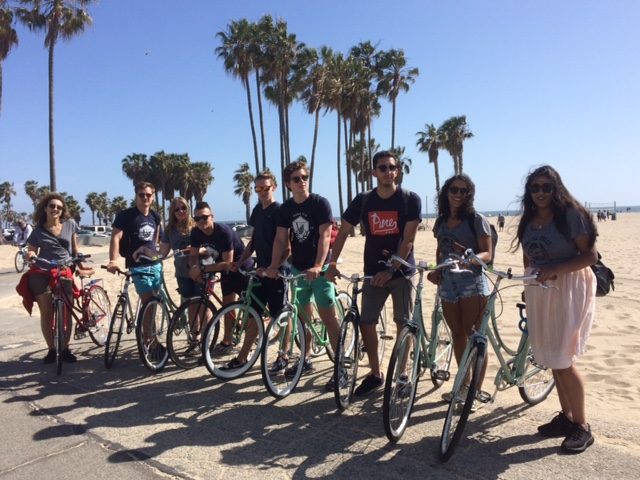
Paola Valerio travelled to Los Angeles with nine of her fellow students and their teacher, Uljee. ‘We wanted to investigate why people in LA don’t ride bikes. During the two weeks that we were there, we rode our bikes everywhere. We were a kind of moving curiosity to the LA residents. Cycling is uncommon there, and all of a sudden, there was this group of young people riding around on brightly coloured, snazzy bikes. We were sponsored by bike label Pure Fix, you see.’
Cycling in LA is not at all like what we are used to here in the Netherlands, Paola noticed. ‘In most areas, there are no cycling lanes or cycling traffic lights. You just cycle next to the cars in their lane. And when there is a cycling lane, sometimes it just suddenly ends, causing unsafe situations. We saw very few cyclists, and the select few that did venture onto the street were wearing protective gear. Cycling simply isn’t safe in the current LA infrastructure.’
So should the use of bikes even be promoted in LA? Wouldn’t the best advice there simply be: ‘don’t ride bikes’? ‘No, because then nothing would ever change. It just needs to be normalised. Then motorists would expect to see cyclists in traffic and show more consideration for them. We experienced that safety really is the bottleneck here, as our local stakeholders also told us. Our advice to the municipality of LA, whom we got to visit to do a presentation, is: invest in safety. Construct cycling lanes, or if you don’t have the means to do so, at least make sure there are clear markings on the road. We feel that there is definitely a desire there to turn LA into more of a cycling city.’
Taipei scooter town
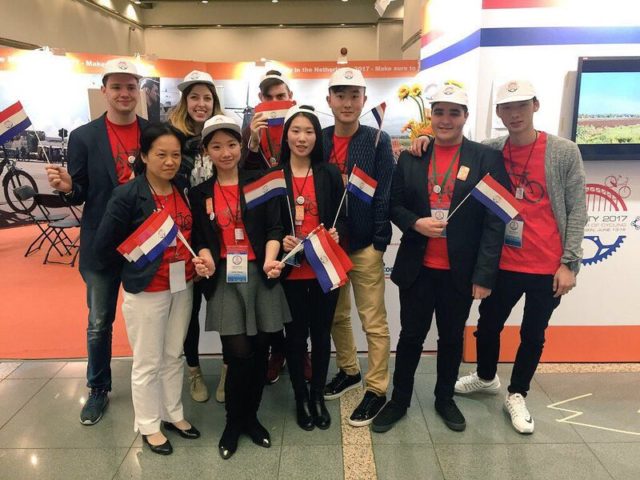
Awareness that mobility changes need to be made is growing in Taipei as well, says Carlijn van Beuzekom, who travelled to the city with nine fellow students and their teacher, Helen de Haan. Taipei, Taiwan’s capital, has a population of 2.5 million. Carlijn: ‘Air pollution is a serious problem there. When we arrived, we noticed that the city is swarming with scooters. And they were not clean, electric scooters, but those loud, gas-guzzling ones. We were very critical about that initially, but as time went by, we began to feel it wasn’t that bad, as far as first steps go. It’s better to have people riding scooters than driving cars, as scooter emissions are much lower.’
‘Cycling is quite up-and-coming in Taipei. In the Netherlands, there’s the so-called ‘OV bike’, a means of public transportation, and in Taipei, they have YouBike, a bike-borrowing project initiated by bike manufacturer Giant. You can borrow or return a YouBike at any metro station or tourist hotspot. These bikes have been used for over two million bike rides already. Moreover, the public transport system is great. Taipei is big, too big to do everything by bike. So that’s another great option: take the metro first, and then borrow a YouBike at your metro stop and cycle to your destination.’
That’s why the students think that there is a lot of potential in Taipei. ‘The city has wide streets with plenty of room for cycling lanes. And there is a great public transport system. The problem is that a lot of people, who are slightly more prosperous than the generation that came before them, feel that cycling is something that poor people do. When people do own bikes, they are often old models that have been in the family for some forty years. Our recommendation is to start raising awareness about cycling and exercising at a young age, and about safety as well. Kids should be given traffic safety training in schools, and everyone should be more diligent about observing the traffic regulations.’
Shanghai: cycling culture is no longer viable
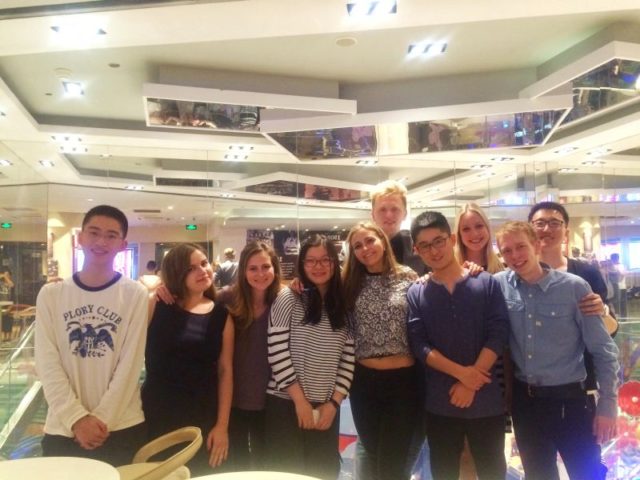
700 kilometres away, in Shanghai, students Dion Blijlevens and Anne-Fleur Snoek (who goes by the nickname ‘Af’, in true Rotterdam fashion), discovered a more or less similar situation. They visited the mega city of Shanghai with four fellow students and their teacher, Linas Cepinskas. Shanghai is China’s biggest city in terms of population, with a population of 24 million. Whereas in Taipei, the awareness of green mobility seemed to be growing and the students that visited that city felt that there was cycling potential, these students feel as though bikes and Shanghai are not a good match, and are unlikely to become one soon.
‘The distances one has to travel in Shanghai are huge. There is a really good public transport network that allows people to travel safely. There are no cycling lanes and the roads are not suitable for cycling traffic. Moreover, the air quality is poor, so cycling isn’t very healthy at all. It’s not a topic that is on people’s agenda. Whenever people talk about green mobility, they’re mainly referring to electric cars.’
Halfway through their stay in Shanghai, Dion and Anne-Fleur already felt that promoting the use of bikes in Shanghai would be naïve. ‘Then again, if you want to make a change, you have to be a bit naïve about it. Shanghai represents a huge market, and even opening up a small portion of that would still result in bikes being an interesting revenue model. It would require some investments though, in terms of infrastructure, traffic safety, education, and a cultural shift as well. Nowadays, Chinese people see bikes as a sign of poverty. That would need to change in order for people to be willing to ride bikes.’
Text: Esmé van der Molen
Photography by the students




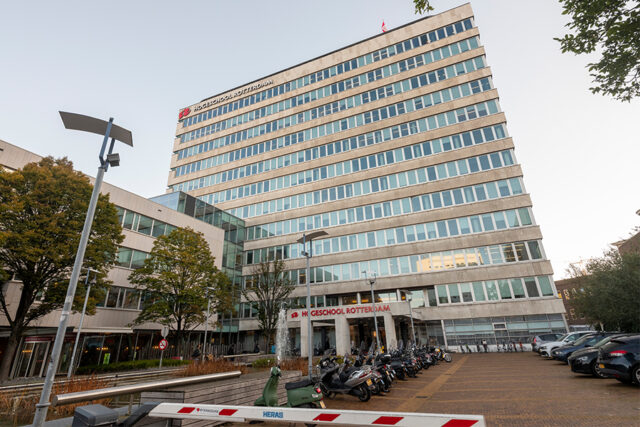
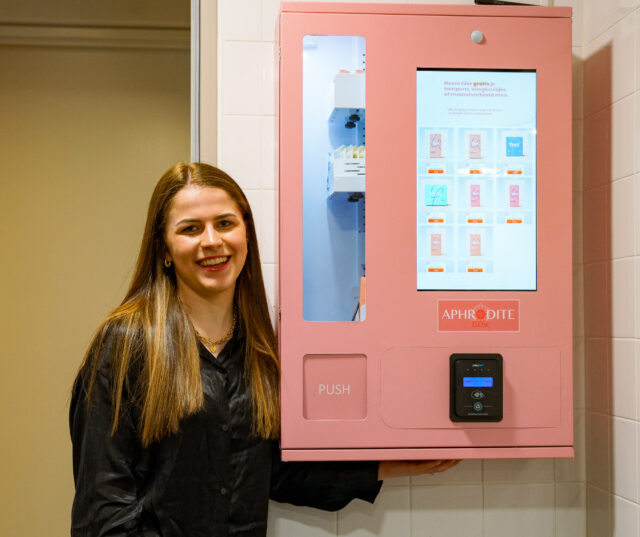
Good work!
Congratulations to all participating members of the IBMS International Project [teachers and students].
Special thanks to Ms van der Molen for highlighting the Bike project of IBMS in this issue of Profielen.
The Bike project has high value added to RBS education program vis-a-vis world sustainability.
More power to Dr Helen de Haan [Taiwan], Mr. Louis Uljee [Los Angeles], Mr. Linas Cepinkas [Shanghai] & Ms Teresa Komlosz [IBMS Project Management Coordinator]!